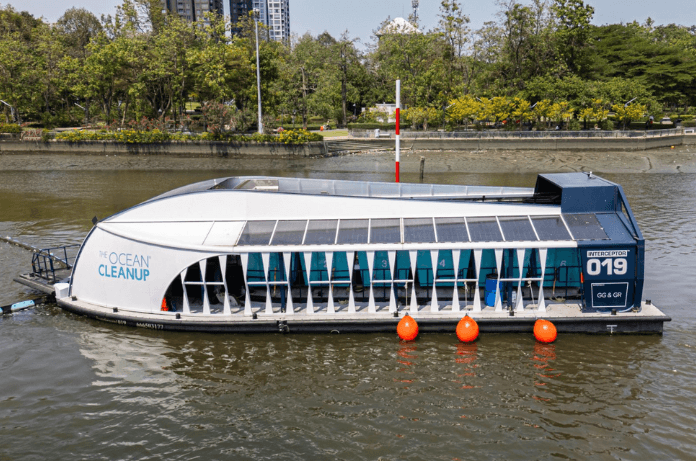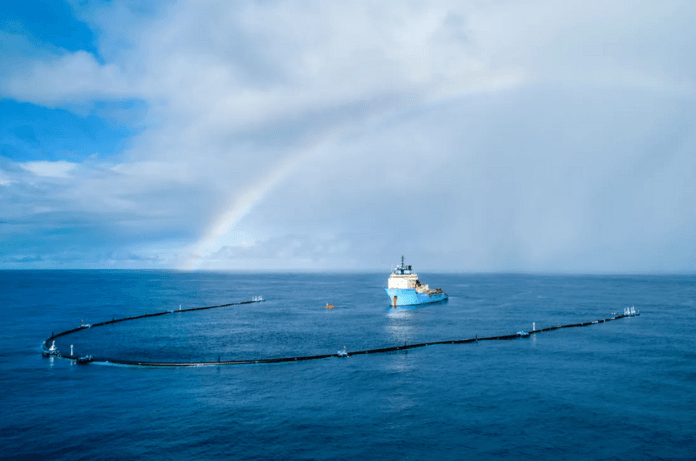Have you ever found yourself walking along a beach and spotting plastic bottles, bags, or even fishing nets tangled up in the sand? It’s a sad reality that our oceans are facing unprecedented levels of pollution. But here’s the good news: thanks to innovative “Ocean cleanup” technology, we are starting to turn the tide in the battle against marine debris!
Growing Marine Pollution
Before diving into the exciting solutions, let’s take a moment to understand the problem. From the 1970s to 1990s plastic waste generation tripled compared to the 1950s to 1970s. In the early 2000s plastic generation rose more in a single decade compared to the previous 40 years. Now, we produce more than 400 million tonnes of plastic waste every year. Plastic forecasted production growth is estimated to reach 1100 million tonnes by 2050.
As per reports, an estimated value of 75 to 199 million tonnes of plastic is found in Oceans. Unless we change how we produce, use, and dispose of plastic, the amount of plastic waste entering aquatic ecosystems could nearly triple from 9-14 million tonnes per year in 2016 to a projected 23-37 million tonnes per year by 2040.
It is estimated that 1,000 rivers are accountable for nearly 80% of global annual riverine plastic emissions into the ocean. This waste harms marine life and disrupts ecosystems. Fish ingest plastic, seabirds get entangled, and coral reefs suffer from chemical pollution. It’s a cycle that’s devastating not just for the oceans but for all of us who rely on these waters for food, recreation, and climate regulation.
Enter Ocean Cleanup Technology
Fortunately, innovators around the globe are stepping up to tackle this issue head-on. Ocean cleanup technology is evolving rapidly, and it’s truly a game changer in our fight against marine pollution. Here are some of the coolest advancements that are making waves:
1. The Interceptor
Have you heard of The Interceptor? Developed by The Ocean Cleanup, this incredible device is designed to collect trash in rivers before it even reaches the ocean. Imagine a giant vacuum that scoops up debris as it flows downstream! The Interceptor uses solar power, making it environmentally friendly and efficient. By targeting rivers, it prevents plastic from entering the ocean in the first place, effectively stopping the problem at the source.

2. The System 001
Next up is System 001, the world’s first cleanup system. It was deployed in the Great Pacific Garbage Patch for approximately four months. This floating device is designed to capture plastic already in the ocean, specifically in high-pollution areas like the Great Pacific Garbage Patch. The System uses a U-shaped barrier to concentrate debris in a central location, making it easier to collect and remove. After trials, it has shown promising results, proving that we can actively clean up our oceans!
3. Drones and Artificial Intelligence
But it doesn’t stop there! Drones and AI are also becoming vital tools in ocean cleanup efforts. These technologies help identify pollution hotspots, monitor the effectiveness of cleanup operations, and even assist in the cleanup itself. Imagine flying a drone over a remote area of the ocean, pinpointing where the plastic is accumulating, and then sending in cleanup teams to tackle it. It’s like having a high-tech map for pollution!
Community Involvement and Innovations
While technology plays a crucial role, let’s not forget the power of community involvement. Initiatives like beach cleanups and educational programs are essential for raising awareness and encouraging people to reduce their plastic use. Groups around the world are organizing events to gather volunteers, and social media is buzzing with campaigns aimed at protecting our oceans. Every small action contributes to a larger change.
The Importance of Policy Changes
In addition to technology and community action, policy changes are vital. Governments must implement stricter regulations on plastic production and waste management. Initiatives like bans on single-use plastics and incentives for recycling can significantly reduce the amount of waste entering our oceans. When technology, community efforts, and policy changes work together, we can create a powerful force for good.
What You Can Do
Feeling inspired? Great! Here are a few simple actions you can take to help combat marine pollution:
- Reduce Your Plastic Use: Opt for reusable bags, bottles, and containers. Every little bit helps!
- Participate in Cleanups: Join local beach or river cleanups to help remove debris from our waterways.
- Spread Awareness: Share information about marine pollution and cleanup initiatives on social media.
- Support Eco-Friendly Brands: Choose products from companies that prioritize sustainability and use minimal packaging.
A Call to Action
Ocean cleanup technology is revolutionizing our fight against marine pollution, but it’s up to all of us to make a difference. Together, we can protect our oceans and the incredible life they sustain.

